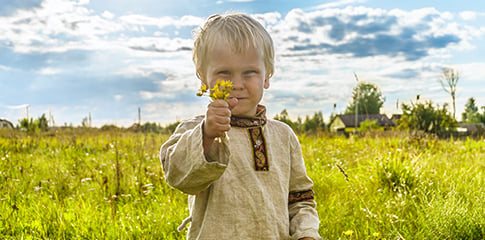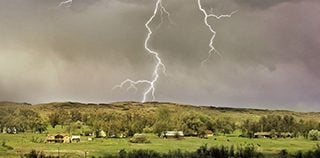If you suffer from hay fever, you’ll know the symptoms: itchy, watery eyes, sneezing and stuffed-up nose to name a few. But do you know what hay fever is caused by? Hay fever is where you have an allergic reaction to pollen. It usually occurs when pollen meets your eyes, nose, mouth and throat, making those irritating hay fever symptoms flare up.
A recent study from Allergy UK shows that almost half (49%) of the UK population experience hay fever symptoms. As the days get sunnier and allergy season begins to peak, it’s important to know how to help hay fever symptoms to reduce the impact they have on your life.
What are the main symptoms?
Hay fever symptoms can be frustrating and exhausting. When suffering from a high pollen count, common symptoms can include:
- Itchy, red or watery eyes
- A snotty or blocked nose
- Sneezing and coughing
- Itchy throat, nose, mouth and ears
- Tiredness
- Headache
- Earache
What helps manage hay fever symptoms?
When all you want is to enjoy your time spent outdoors, the last thing you need is to be battling with a high pollen count. Studies show that stress and anxiety can sometimes aggravate your allergies, too. We get it: hay fever symptoms will hack you off and make you worry. But there are ways to combat them with some hay fever tips.
Here are a few ways to help hay fever symptoms during seasonal allergies:
- Try not to touch your face. Rubbing your itchy eyes, mouth and nose can transfer pollen from your hands to your face.
- Wash your hands, shower, and change your clothes after being outside to wash off any pollen.
- Indoors, keep windows and doors shut as much as possible during high pollen counts.
- Use a barrier balm around your nostrils to help trap pollen before you inhale it.
- Wear wraparound sunglasses to protect your eyes from pollen in the air.
- Stock up on hay fever relief products like hay fever eye drops, Allergy Comfort face wipes and antihistamine tablets.
If you’re wanting some fun in the sun during allergy season, be savvy about the time you head outside. Generally, pollen count increases during early mornings and evenings. If you can, give those times a miss and stay indoors. You’ll typically see a drop in the pollen count after it’s rained, so heading out straight after a storm is a good shout too.
Prepare for all conditions and find out the pollen levels in your area with Your Pollen Pal.
Quick hay fever hacks
- Be the boss of pollen. Plan your hay fever relief in advance and make sure you’ve got a handy supply of Allergy Comfort face wipes, eye drops and tissues when out and about.
- Step away from the washing line. Don’t dry clothes outside during a high pollen count.
- Make your home a flower-free zone. Sorry, but no fresh flowers allowed!
- Choose wisely when you head outdoors and don’t go exploring during a peak pollen count.
- No matter how tempting it is, don’t walk across that freshly cut grass…
How long do hay fever symptoms last?
How long hay fever symptoms last can depend on each person, as well as how much pollen you may be exposed to. Typically, your symptoms may last as long as the peak hay fever season. This can be weeks or, brace yourselves, even months. The best way to ease hay fever symptoms is to manage your relief and limit exposure.
Don’t let hay fever symptoms spoil your fun. There are plenty of ways to manage hay fever relief and avoid a high pollen count by following these handy steps. Find out the pollen count near you with the help of Your Pollen Pal or see what pollen you’re allergic to with our hay fever and allergy test.
FAQs
Is hay fever contagious?
Unlike a cold, hay fever symptoms such as itchy eyes, a snotty nose and tickly throat or cough are not contagious and can’t be passed to others.
What causes hay fever?
Hay fever, also known as allergic rhinitis, is caused by an allergic reaction to pollen. The most common irritants come from the pollen of grass, trees, weeds and flowers.
Why have I suddenly developed hay fever?
Hay fever symptoms occur from having contact with pollen. Peak allergy season can start from March to September, with May to July being some of the most aggravating months.
The content should not substitute medical advice from your personal healthcare provider. Please consult your healthcare provider for recommendations/diagnosis or treatment












